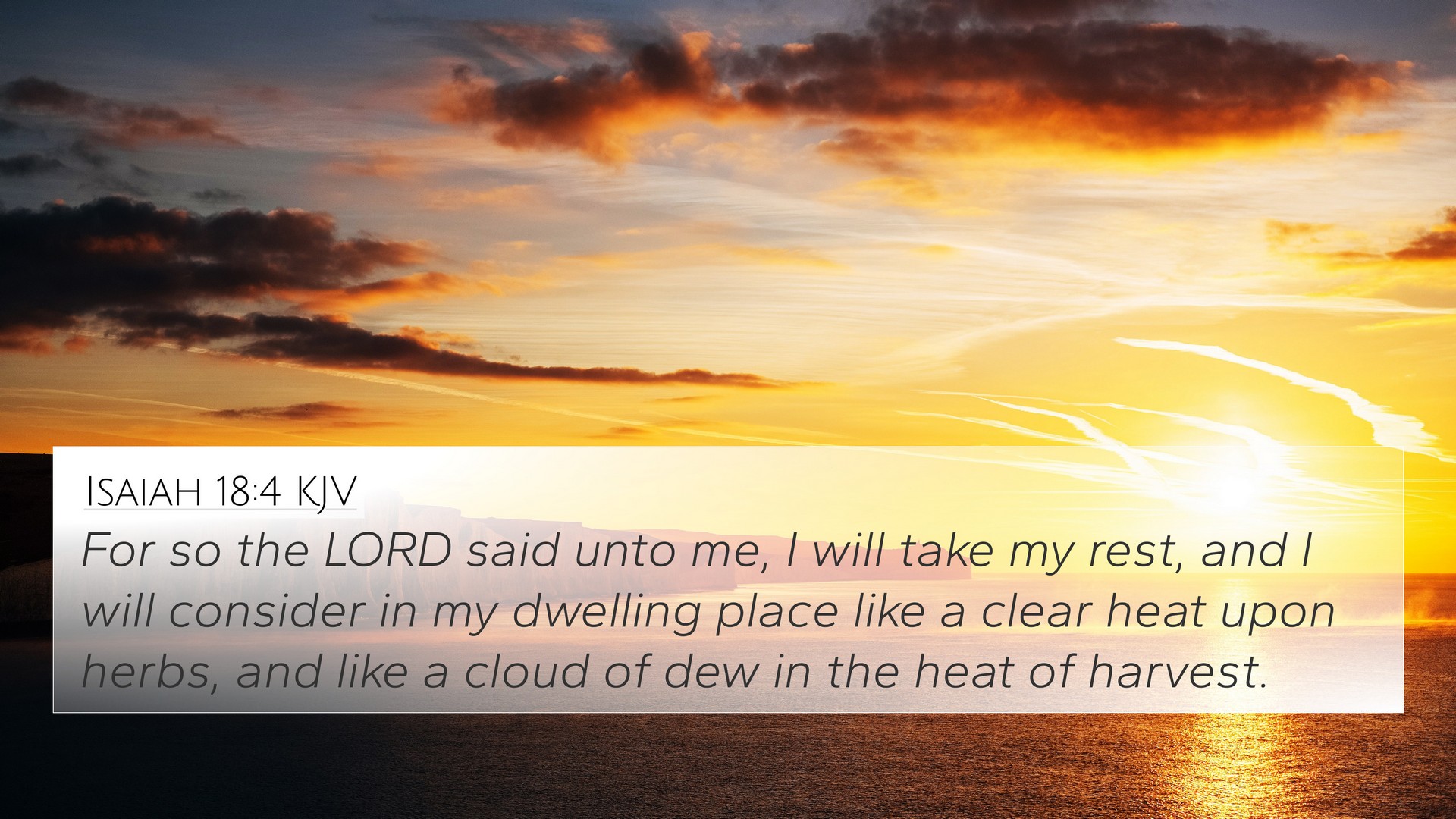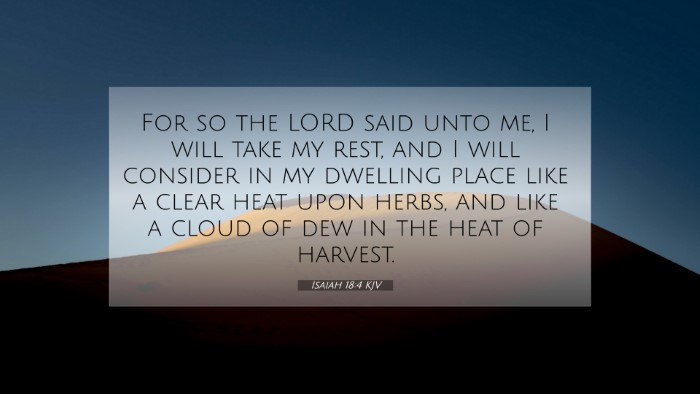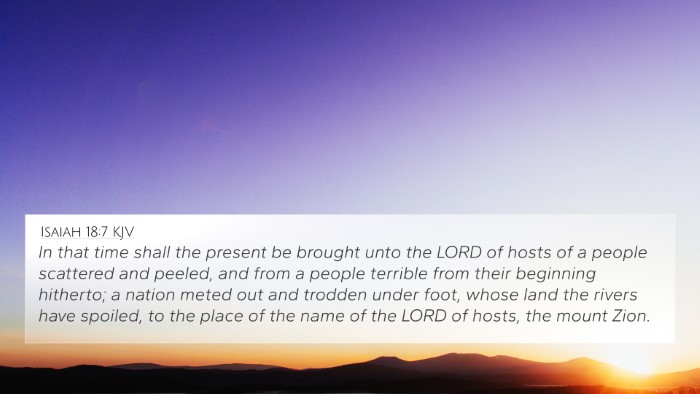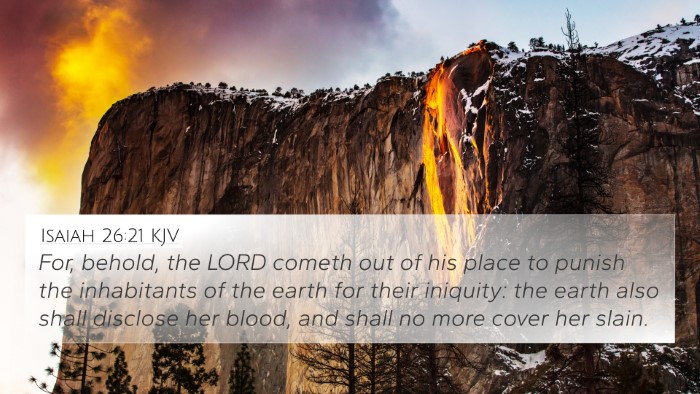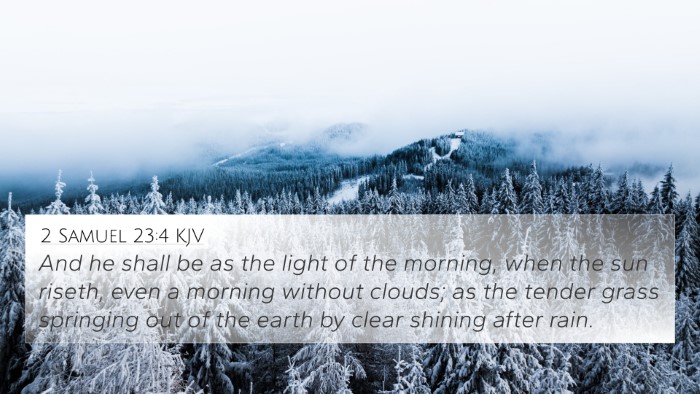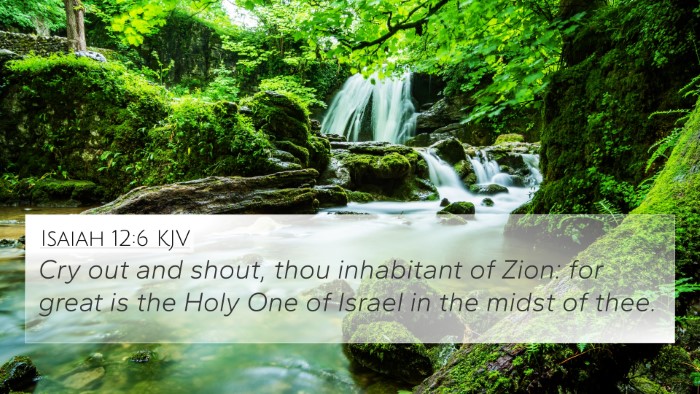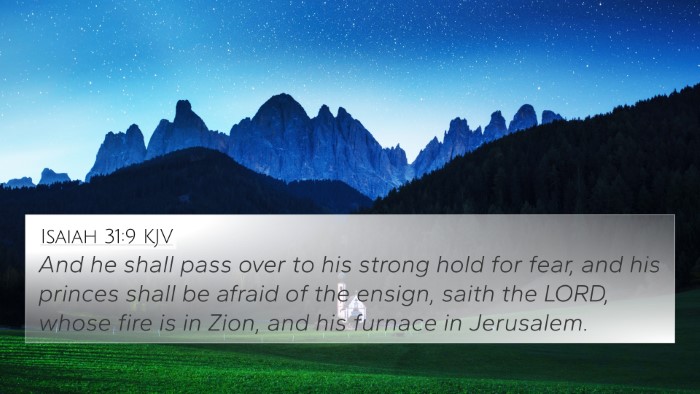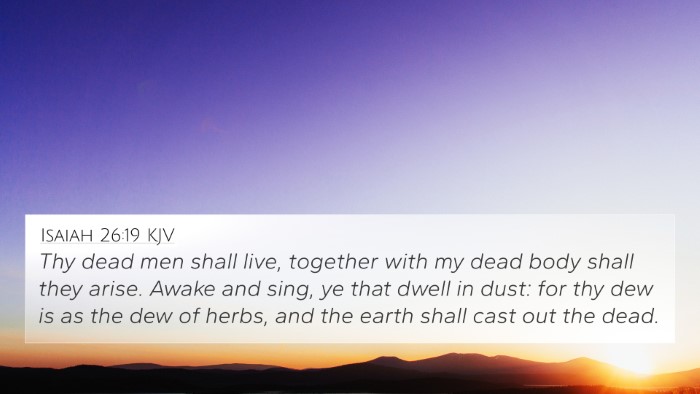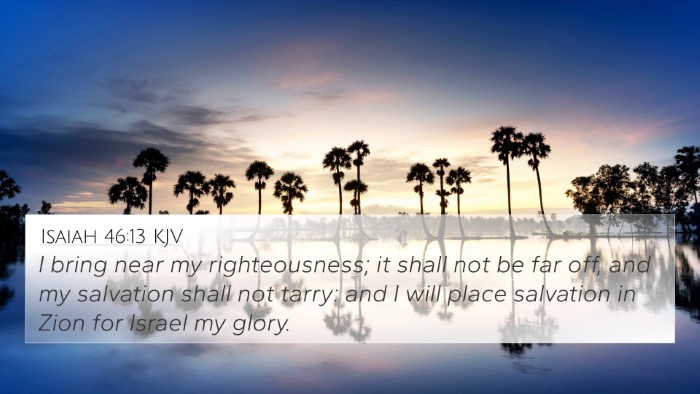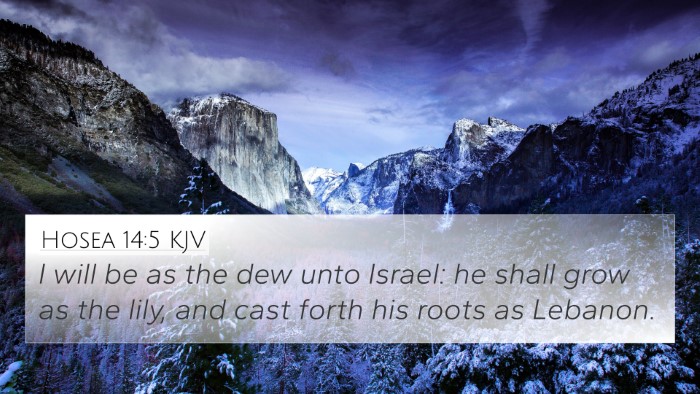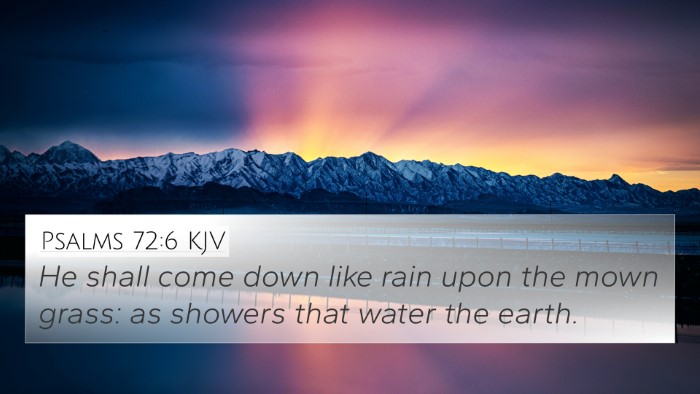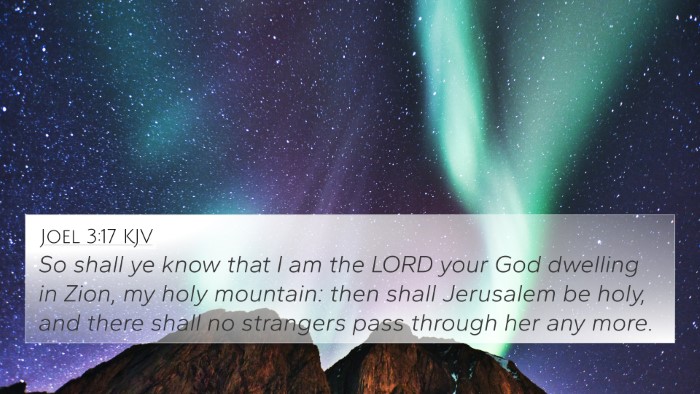Understanding Isaiah 18:4
Isaiah 18:4 states: "For so the Lord said unto me, I will take my rest, and I will look from my dwelling place like a clear heat upon herbs, and like a cloud of dew in the heat of harvest." This verse offers profound insights into God's demeanor and His engagement with the world, particularly during times of judgment and blessing.
Summary of Insights
The interpretations from various public domain commentaries shed light on this verse, emphasizing several key themes:
- Divine Observation: God is depicted as taking a watchful stance, observing events from His heavenly abode, which illustrates His omniscience.
- Symbolism of Rest: The concept of God taking “rest” implies a period of divine patience or restraint before intervening in human affairs.
- Nature Imagery: The imagery of heat and dew signifies both the challenges and nourishment God provides to His people, reflecting His control over nature.
- Harvest Time: This reference indicates a time of fruition where actions are rewarded, either positively or negatively depending on the moral state of people.
Comprehensive Analysis
Isaiah 18:4 serves as both a warning and a promise, encapsulating God’s dual role as a judge and a provider. Matthew Henry notes the significance of God’s observance during moments of human activity, highlighting the need for accountability. Albert Barnes further elaborates on “taking rest” as a metaphorical pause, indicating that although God is omnipresent, He does not always act immediately, offering grace and time for repentance.
According to Adam Clarke, the comparative imagery in this verse emphasizes God’s nurturing side amidst judgment. The "dew" mentioned can symbolize God’s blessings, which come gently and refreshingly after a time of drought or urgency.
Cross-References
To deepen understanding, here are relevant cross-references related to Isaiah 18:4:
- Psalm 104:27-28: Recognizes God's provision in nature.
- Isaiah 30:18: Illustrates God's patience and the rewards of waiting for Him.
- Micah 7:1: Reflects on the futility of human efforts compared to God's timing.
- James 5:7: Encourages waiting for the Lord like a farmer awaits the harvest.
- Matthew 24:36: Emphasizes God's knowledge of time, depicting divine waiting.
- Isaiah 26:20-21: Encourages God's people to hide until His anger passes, showcasing protectiveness.
- John 7:37-39: Relates to God’s provision of the Spirit, paralleling the images of dew and nourishment.
- Galatians 6:9: Encourages persistence in doing good and awaiting results.
- Zac 10:1: Invites requests for rain, emphasizing God's control over agricultural blessings.
- Revelation 22:17: Shows God's invitation for all to partake in the living water He provides.
Connecting Themes
The verse suggests an introspective perspective for believers, inviting them to reflect on their own lives in light of divine observation and expectation. It emphasizes the importance of recognizing God’s timing in one's spiritual journey and understanding the broader themes of divine patience, nurturance, and the anticipated harvest that reflects our deeds.
Conclusion
Isaiah 18:4 enriches our understanding of God's nature, His methods of interacting with humanity, and the essential need for awareness of His presence and timing. The interconnectedness of scripture through cross-references further enhances our comprehension of biblical themes, illustrating the intricate fabric of God's message throughout the Bible.
References to Explore Further
- Bible concordance
- Bible cross-reference guide
- Tools for Bible cross-referencing
- Bible reference resources
- Comprehensive Bible cross-reference materials
